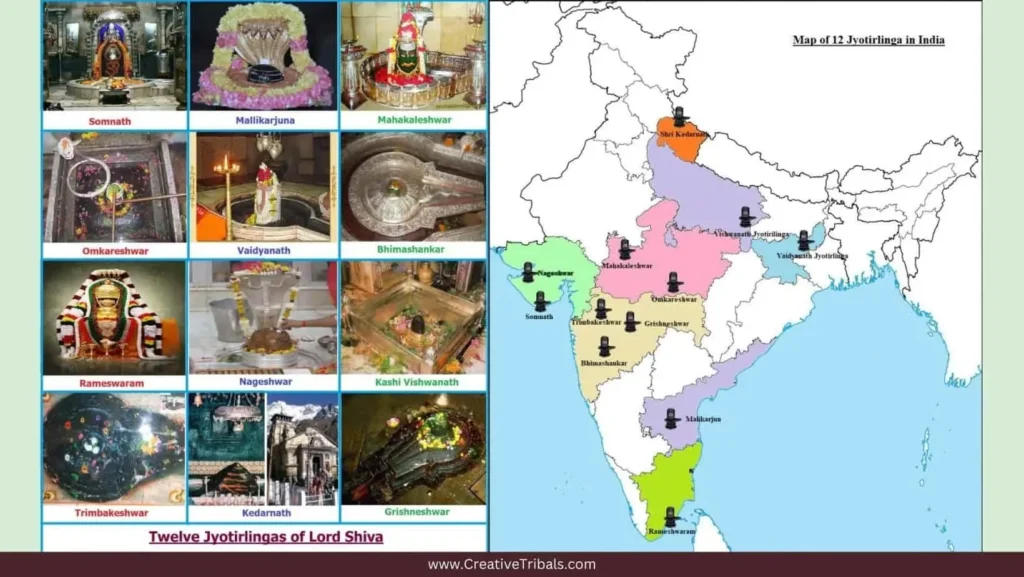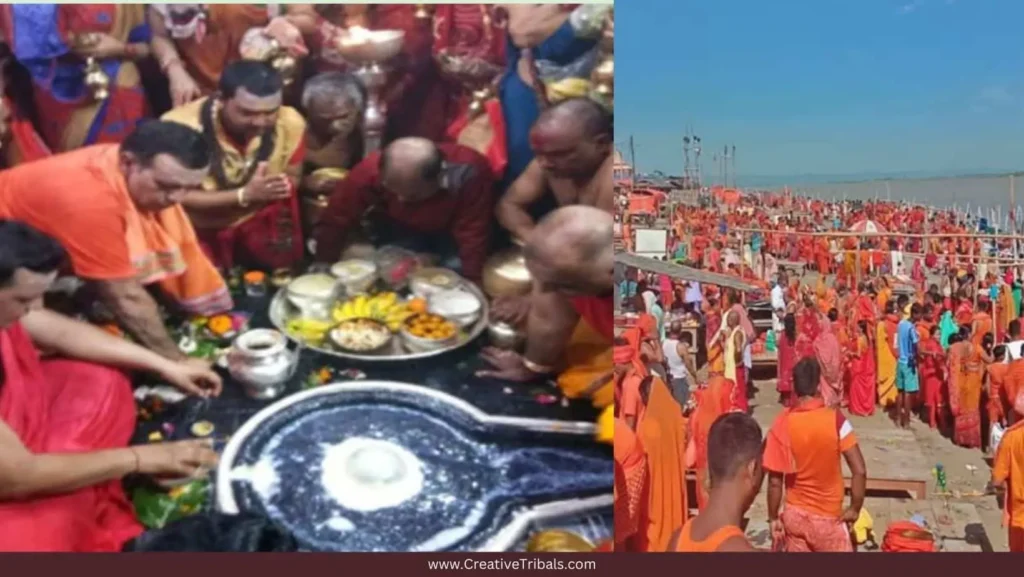
Babadham, also known as Baba Baidyanath Dham, is a revered temple complex situated in Deoghar, Jharkhand, India. This sacred site holds immense significance in Hindu mythology and attracts millions of devotees, especially during the auspicious month of Sravan. The pilgrimage to Babadham in Sravan is a journey of faith, devotion, and cultural richness that has been a cornerstone of Hindu traditions for centuries.
Introduction
The month of Sravan, dedicated to Lord Shiva, is a period of intense religious activities and devotion in India. Among the various pilgrimages undertaken by devotees, the journey to Babadham stands out for its spiritual depth and cultural vibrancy. This article delves into the significance of Babadham in Sravan, exploring its historical background, rituals, and the profound experiences of pilgrims.
The Significance of Babadham in Sravan
Babadham is one of the twelve Jyotirlingas, which are considered the most sacred abodes of Lord Shiva. The temple complex is home to the Jyotirlinga of Baba Baidyanath, making it a pivotal destination for Shiva devotees. During Sravan, the temple sees an unprecedented influx of pilgrims who undertake arduous journeys to seek blessings and offer their prayers.
Somnath in Gujarat, Mallikarjuna at Srisailam in Andra Pradesh, Mahakaleswar at Ujjain in Madhya Pradesh, Omkareshwar in Madhya Pradesh, Kedarnath in Himalayas, Bhimashankar in Maharashtra, Viswanath at Varanasi in Uttar Pradesh, Triambakeshwar in Maharashtra, Vaidyanath Jyotirlinga at Deogarh in Jharkhand, Nageswar at Dwarka in Gujarat, Rameshwar at Rameswaram in Tamil Nadu and Ghushmeshwar at Shiwar in Sawai Madhopur district Rajasthan, 12th joytrilinga is Grishneshwar at ellora in aurangabad district Maharashtra.


Historical Background of Babadham
The origins of Babadham date back to ancient times, shrouded in legends. A thought once came to Ravan’s mind: he should travel from the distant region of Lanka to Kailash, situated at the far end of Uttaranchal in Bharat, to see his adored deity again and again. To make this easier, Ravan decided to convince Bhagwan Shiva to stay in Lanka, allowing him constant darshan. With this purpose, Ravan embarked on relentless penance at Kailash. While Shiva did not agree to move, Ravan proposed a compromise: Shiva’s “Kamna Ling” could be a substitute. Shiva accepted this on the condition that Ravan must not put the Ling down on the way; if he did, it would remain at that spot permanently. Ravan agreed to this condition.
This decision stirred concern among the other Devtas, as it would potentially enhance Ravan’s already formidable demonic power. To counter this, they devised a plan. As Ravan was carrying the “Kamna Ling” to Lanka via the sky route, he suddenly felt an uncontrollable urge to urinate when he reached a place called Deoghar. Descending from the sky, he handed the Shiva Ling to Lord Vishnu, who had disguised himself as a Baidyanath shepherd, and began to relieve himself. However, this was an illusion created by Lord Vishnu. Hours passed, yet Ravan’s urination did not cease.
Rituals and Ceremonies
The rituals at Babadham during Sravan are elaborate and deeply symbolic. Pilgrims perform ‘Abhishekam,’ a ritual bathing of the Shiva lingam with water, milk, and other sacred substances. Chanting of Vedic hymns and ‘Om Namah Shivaya’ reverberates through the temple complex, creating an atmosphere of divine energy. The sight of thousands of devotees united in their devotion is a testament to the enduring power of faith.


Cultural Significance and Festivities
The Sravan Mela is not just a religious event but a grand celebration of culture and community. The streets of Deoghar come alive with vibrant processions, traditional music, and dance performances. Local artisans showcase their crafts, and the air is filled with the aroma of delicious regional cuisine. The festival fosters a sense of unity and shared spirituality among people from diverse backgrounds.
Personal Experiences of Pilgrims
The pilgrimage to Babadham in Sravan is often described as a transformative experience. Pilgrims recount stories of miraculous healings, answered prayers, and a profound sense of peace upon visiting the temple. The hardships endured during the journey, such as walking barefoot and fasting, are seen as acts of penance that bring them closer to the divine.
Preparing for the Pilgrimage
For those planning to undertake the pilgrimage, preparation is key. Pilgrims should be physically fit to endure the long walk and the challenges of the journey. Carrying essentials such as water, food, and first-aid kits is crucial. Additionally, spiritual preparation through meditation and prayers can enhance the experience, making it more fulfilling and meaningful.
Accommodations and Facilities
Deoghar offers various accommodations to cater to the needs of pilgrims. From basic dormitories to more comfortable lodges, options are available to suit different budgets. The local administration and temple authorities make special arrangements during Sravan to ensure the safety and comfort of the devotees. Temporary shelters and medical camps are set up along the pilgrimage route to assist those in need.
Accommodation(Hotel/Resort/Dharamsala)
A place (such as a room in a hotel) where travelers can sleep and find other services.
Exploring Deoghar Beyond Babadham
While Babadham is the focal point of the pilgrimage, Deoghar itself has much to offer. The town is dotted with other significant temples, such as the Basukinath Temple and the Naulakha Mandir. Pilgrims can also visit the tranquil surroundings of Nandan Pahar and Tapovan, which offer scenic beauty and a serene environment for meditation and reflection.
The Environmental Impact of the Pilgrimage
The massive influx of pilgrims during Sravan poses environmental challenges. The local authorities and temple management work tirelessly to manage waste and maintain cleanliness. Pilgrims are encouraged to adopt eco-friendly practices, such as using reusable water bottles and avoiding plastic, to minimize their environmental footprint.
Future of the Sravan Pilgrimage to Babadham
As the number of pilgrims continues to grow each year, there are ongoing efforts to improve infrastructure and facilities. Plans for better roads, enhanced medical services, and more sustainable waste management systems are being implemented. The goal is to preserve the sanctity and spiritual essence of the pilgrimage while accommodating the needs of an increasing number of devotees.
The Impact of COVID-19 on the Pilgrimage
The COVID-19 pandemic significantly impacted the Sravan pilgrimage, with restrictions on gatherings and travel. However, with the gradual easing of restrictions and the implementation of safety protocols, the pilgrimage is slowly returning to its former vibrancy. The resilience and unwavering faith of the devotees have ensured that the spirit of the pilgrimage remains undiminished.
FAQs
What is the significance of Sravan in Hinduism? Sravan is considered the holiest month for worshipping Lord Shiva. It is believed that prayers and rituals performed during this month are especially auspicious and bring divine blessings.
Why is Babadham famous? Babadham is renowned for being one of the twelve Jyotirlingas, sacred abodes of Lord Shiva. It is a major pilgrimage site, especially during the month of Sravan.
What are the main rituals performed at Babadham during Sravan? The primary ritual is the ‘Abhishekam,’ where devotees bathe the Shiva lingam with holy water and other sacred substances. Chanting of hymns and prayers is also a significant part of the rituals.
How do pilgrims prepare for the journey to Babadham? Pilgrims prepare physically and spiritually for the journey. They carry essentials such as water, food, and first-aid kits and often engage in meditation and prayers before the pilgrimage.
What accommodations are available for pilgrims in Deoghar? Deoghar offers a range of accommodations, from basic dormitories to more comfortable lodges, to suit different budgets. Temporary shelters are also set up during Sravan to accommodate the large number of pilgrims.
How can pilgrims minimize their environmental impact during the pilgrimage? Pilgrims can adopt eco-friendly practices, such as using reusable water bottles, avoiding plastic, and disposing of waste properly. Participating in community clean-up drives also helps in maintaining the cleanliness of the pilgrimage route.











